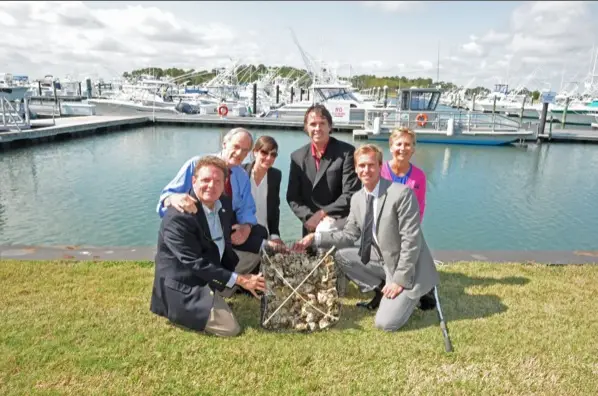Representatives from the University of Delaware and the Center for the Inland Bays joined with U.S. Sen. Tom Carper to announce two federal grants to further determine the potential oyster farming in Delaware’s Inland Bays.
“These grants from the U.S. Department of Commerce and USDA Rural Development will look into the business potential for Delaware shellfish aquaculture,” said Carper. “Oyster farming is a win-win for Delaware, since oysters improve water quality and farming will create another local industry that provides jobs. There is good work being done in Delaware by both public and private partners, and these grants will help further that research.”
The industry has raised “Not in my backyard” concerns along the Inland Bays that were aired in a recent News Journal story. The bays have seen an influx of residential development and residents with fewer ties to the Sussex County economy.
More than 10 years of research, demonstration and technology transfer work guided by Delaware Sea Grant (DESG) in cooperation with the Delaware Center for the Inland Bays (CIB), and ( Delaware State University has documented the value and benefit of shellfish aquaculture as a means to improve the quality of the Inland Bays estuary and to enhance local seafood production and economic development, according to a release announcing the grants.
Oyster farming has the potential to improve water quality in the troubled Inland Bays, since Oysters serve as natural filters for water. Neighboring Maryland has a growing aquaculture industry along the Chesapeake Bay.
The U.S. Department of Commerce awarded $164,341 to the University of Delaware to study the economics of ecosystem services from aquaculture and estimating consumer willingness to pay for oysters marketed as local and marketed as improving water quality.
“We are all extremely excited to see oyster aquaculture come to our state, because oysters have the potential to be both good for the economy and good for the environment and it is somewhat rare that you see these two things go hand in hand,” said Sunny Jardine, assistant professor of marine science and policy in UD’s College of Earth, Ocean, and Environment (CEOE). “Having oysters in the water improves water quality, because oysters filter nutrient pollutants out of the water, such as nitrogen and phosphorous, which come from agricultural and urban runoff and pollute our water bodies.”
Also, USDA Rural Development awarded the University’s Sustainable Coastal Communities Initiative a $28,287 Rural Business Enterprise Grant to work with the firm ab+c Creative Intelligence to research and develop a branding strategy for Inland Bay aquaculture products that will be used by all the new shellfish farmers to brand and market their products to restaurants and customers.
“With funding support from USDA Rural Development, we have initiated an effort to develop a strong, local market share for Inland Bays aquaculture products,” said Ed Lewandowski, Delaware Sea Grant’s coastal communities development specialist. “Creating brand affinity with consumers and brand equity for producers will be absolutely critical to gaining successful product entry and then sustaining this market success.”





